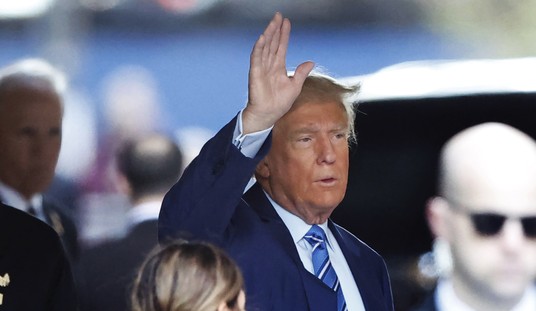President Obama promised a “year of action” with or without cooperation from Congress in last night’s State of the Union speech, attempting to rekindle confidence in his leadership through the threat of unilateral executive action. His opening salvo, the raising of the minimum wage for federal contractor workers, actually shows the limits of that power, and moreover hardly serves as a rally point for voter enthusiasm. At the Washington Post, Sean Sullivan and Peyton Craighill call it a “political nothing burger“:
The use of executive fiat — Obama announced a new order hiking the minimum wage for some government contract workers as part of a “year of action” — simply doesn’t excite or enrage the American public as a whole. Roughly half of Americans (52 percent) say they approve of presidents using the tool, according to the newestWashington Post-ABC News poll. Forty-six percent say they oppose such maneuvers.
Herein lies an important point about Washington. Executive orders are about process. It’s a means of making public policy. And the public is largely unmoved by insider-y process stories despite the attention they get in D.C. (This blog is not excepted, of course.)
As the largely-symbolic EO on federal contracts proves, Obama’s ability to create actual policy is seriously restricted. The New York Times points out the small amount of impact that EOs can have in reality:
But with some notable exceptions, only so much can be delivered through the president’s pen if he is not using it to sign legislation. He cannot raise the minimum wage for most workers, overhaul the Social Security system, grant legal status to millions of undocumented immigrants, reorder spending and taxes, or even make necessary fixes to the health care law.
Illustrating how challenging it is to use executive orders in an expansive way, the White House refused to say how many workers might gain under the new wage policy, and Republicans, while criticizing the move, played down its impact. At the same time, anyone who succeeds him can use the stroke of a pen to undo Mr. Obama’s actions just as Mr. Obama did to some Bush-era policies one day after his inauguration in 2009. …
The approach will also feed the conservative narrative that Mr. Obama is engaged in a power grab and is ignoring constitutional limits. They point for validation to the so-far-successful legal challenge to his use of recess appointments in a case now before the Supreme Court.
This approach does, however, fire up the Republican base, who already see Obama as high-handed and imperial. That’s where this goes from a political nothingburger to a potential Double Whopper of misery to Senate Democrats. They’re already under fire for the disastrous rollout of ObamaCare, and Obama’s arrogance provides yet another problem for them in the midterms, National Journal’s James Oliphant writes:
Polls show the president is facing a credibility deficit at the very moment he is asking the nation to have faith in his ability to act without Congress. “He’s going to have trouble asking for that level of trust,” said Republican pollster Bill McInturff. “He’s on shaky ground.” McInturff helped conduct the most recent Wall Street Journal/NBC poll, released Tuesday, which showed that almost 70 percent of Americans now believe the country is stagnant or worse off than when Obama took office.
The White House knows this, but seems unable to accept it. Prior to his address, Obama’s aides were quick to note that despite their push to rebrand 2014 as a year of executive action, the big-ticket items such as immigration reform and hiking the minimum wage will still have to go through Congress. It’s resulted in some mixed messaging: The president can do a lot—but only just so much.
The risk is that the public Tuesday night heard one message but not the other—and walked away with an inflated sense of what a president cando. Obama’s bold talk may then be followed by orders that can impact the economy only at the margins, further damaging his credibility if the results are tepid—and dragging Democrats down with him. (And the one job-creator that Republicans want him to approve via executive fiat—the Keystone pipeline—is locked in limbo.)
At the same time, he’s handed the GOP talking points that line up with its never-ending attempt to paint him as a big-government tyrant—talking points that they are already deploying in key Senate battleground races.
Specifically, they’re deploying those arguments to explain ObamaCare, which Senate Democrats will have to defend as a bottom-up benefit at the same time Obama promises to issue a blizzard of EOs to ignore the people’s branch of government. It’s a low-reward, high-risk strategy that mostly provides those rewards to Obama at the expense of the more vulnerable members of his own party. That’s also a pretty eerie parallel to ObamaCare, as Democrats discovered in the last midterm elections.
The arrogance on this approach exists on more than one level. Once again, it plays directly into the Republican narrative, and Democrats who hitch their wagon to Obama may find that provoking the GOP base is a bad idea when Obama doesn’t have anything personally at stake in an election … again.








Join the conversation as a VIP Member